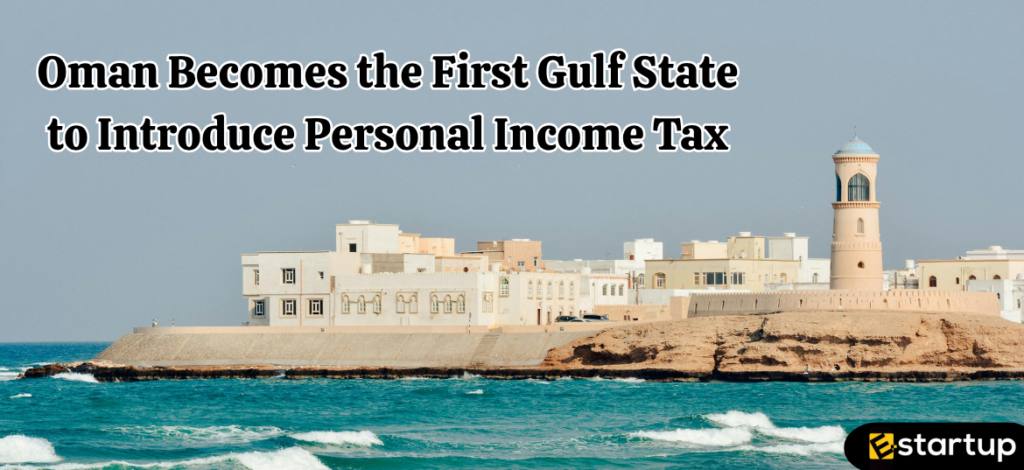Oman Becomes the First Gulf State to Introduce Personal Income Tax: What This Means and Why It Matters
For decades, the Gulf region has been known as a tax-free paradise with no income tax, high salaries, and a lifestyle that attracts millions of professionals and expatriates. But now, for the first time ever, a Gulf country has taken an historic stride to change that landscape.
Through Royal Decree No. 56/2025, Oman has officially announced that it will introduce a 5% Personal Income Tax on high-income earners , starting January 2028 . This makes Oman the first country in the GCC to implement such a tax.
This decision has left many people wondering: Why now? Who will be affected? And what does this mean for the future of the Gulf? Let’s break it down in a simple and clear way.
What Does Oman’s Personal Income Tax Really Mean?
In other words, Oman will start levying taxes on the salaries of only high-income earners . This is not everyone’s tax. This is not a burden on low or mid-level employees. Instead, it targets a specific group of top earners who make more than a certain threshold (to be announced soon).
The tax rate shall be 5% which is very small compared with global standards; many countries impose 15% to 40% taxation.
So, this move doesn’t suddenly make Oman an expensive place to live; instead, it marks a shift toward a more balanced and sustainable economic model.
The Official Announcement: What Did the Royal Decree Say?
The government formalized this move through Royal Decree No. 56/2025 , which confirmed:
- Oman will introduce personal income tax .
- The tax will apply only to high-income earners .
- The rate shall be 5% .
- Implementation date is January 2028 .
By setting a three-year preparation window, Oman is giving ample time to businesses and individuals in order to understand the change and gradually adapt to it.
Who Will Be Taxed?
Only high-income earners : both Omanis and expatriates.
The government has said categorically:
- Low-income workers will not be taxed.
- Middle-income households will not be taxed.
- Most of the population of Oman will not be affected directly by this.
The tax is designed to be fair, targeted, and minimally disruptive, focusing only on those with significantly higher earning capacity.
When Will the Tax Start?
The tax will officially commence on:
1 January 2028
Over the next three years, the Ministry of Finance will release:
- The minimum income threshold for taxation
- Exemption categories
- Payroll and reporting procedures
- Digital filing systems
This slow, phased approach highlights the government’s intention: stability, not shock.
Why Is Oman Introducing Income Tax?
This step is part of Oman’s long-term economic transformation. Here’s why it matters.
1. Reducing Dependence on Oil
Oman, similar to other countries in the Gulf, depends greatly on oil revenue. Due to major fluctuations in the global price of oil and increasing pressures to switch to renewable energy resources, Oman is facing a necessity for alternative, dependable sources of income.
2. Support to Vision 2040
Oman’s Vision 2040 is centered on the diversification of the economy, social development, and financial stability. A small personal income tax undergirds investments in key public services such as healthcare, education, and infrastructure.
3. Alignment With Global Standards
The world is moving toward more transparent and modern tax systems. More importantly, putting personal income tax in place positions Oman better globally and instills investor confidence.
4. Building Long-Term Stability
The modest tax contribution given by high-income earners helps the government to build a more resilient and sustainable financial system for the future.
Why This Matters for the Gulf Region
This will make Oman the first GCC country to impose a tax on personal income, which could set a new tone for the region.
- Other Gulf states may watch closely the experience of Oman.
- It reflects broader economic reforms taking place across the Gulf.
- It portends a future in which revenue diversification will become imperative.
While Oman may be the first, it may not be the last.
Conclusion
Oman’s decision to introduce a 5% income tax on high-income earners marks a historic shift for the Gulf. It’s not about burdening people, it’s about preparing the country for a more stable, diversified economic future. For most residents, life won’t change.
For high earners, smart financial planning will help adapt to the new system.
For the region, this moment could represent the beginning of a new economic chapter.
Need expert guidance on GCC tax changes, personal tax planning, or business setup?
Contact E-Startup today we help individuals and companies navigate Middle East tax reforms with clarity and confidence.
References
Oman Ministry of Finance – Official Announcement on Personal Income Tax – https://www.mof.gov.om/
FAQs
1. Is Oman really the first Gulf state to introduce personal income tax?
Yes. Oman is officially the first country in the GCC to announce a personal income tax on high earners, marking a major shift in the region’s tax landscape.
2. When will Oman’s personal income tax come into effect?
The tax is set to begin in January 2028, as announced under Royal Decree No. 56/2025.
3. What is the tax rate?
A 5% personal income tax will apply to individuals exceeding a certain income threshold (details to be released by the Ministry of Finance).
4. Who will be taxed under this new system?
Only high-income earners will be subject to the tax. Lower and middle-income individuals will not be affected.
5. Will expatriates in Oman have to pay this tax?
Yes, the tax applies to both Omanis and expatriates, but only if their income crosses the eligible threshold.













